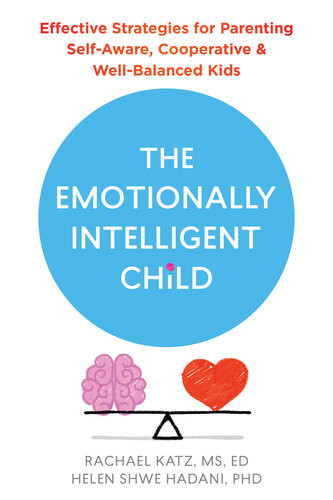

Most ebook files are in PDF format, so you can easily read them using various software such as Foxit Reader or directly on the Google Chrome browser.
Some ebook files are released by publishers in other formats such as .awz, .mobi, .epub, .fb2, etc. You may need to install specific software to read these formats on mobile/PC, such as Calibre.
Please read the tutorial at this link: https://ebookbell.com/faq
We offer FREE conversion to the popular formats you request; however, this may take some time. Therefore, right after payment, please email us, and we will try to provide the service as quickly as possible.
For some exceptional file formats or broken links (if any), please refrain from opening any disputes. Instead, email us first, and we will try to assist within a maximum of 6 hours.
EbookBell Team

4.7
66 reviewsReal tools for parenting with patience, and helping your child develop emotional intelligence—an essential character trait for succeeding in our highly social world
If you're like many parents, you may wonder what's going on inside your child's mind when they throw a temper tantrum, refuse to cooperate or become overly excited. Written by two experts in child development and education, The Emotionally Intelligent Child offers a groundbreaking approach for understanding your child's behavior in the context of their development, as well as tips for parenting with compassion, and strategies for helping your child build emotional intelligence—a key element of success in today's world.
In the book, you'll learn all about the stages of development your child goes through as they gain social awareness and emotional balance—and how you can nurture this development using the author's innovative MIND framework.
By shifting your thinking from an adult viewpoint to a child's, you'll discover how you can scaffold and support your child's social and emotional learning; and ensure the development of prosocial behavior, impulse control, and perspective taking. This shift in viewpoint will also help you gain more patience as a parent, respond with less reactivity, and—most importantly—cultivate more joy together as a family.